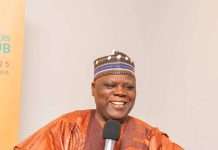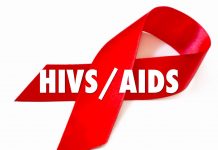In this exclusive interview with Adebayo Folorunsho-Francis, seasoned pharmacologist, Professor David T. Okpako reveals his harrowing experience while attempting to pioneer Pharmacy programme at the University of Ibadan. He also discloses the place and scope of herbal remedies in today’s society. Excerpts:
Tell us a bit about yourself, especially your early days
My actual date of birth is unknown. But I believe it was sometime around 22 November, 1936. I started primary school a bit late in my village Owahwa, in Ughelli South LGA, Delta State, at about nine years of age. I completed it in about four years (1944-1948). After my secondary education at Urhobo College, Effurun, I entered the Nigerian College of Arts, Science and Technology, Ibadan for my A-Level GCE and Diploma in Pharmacy course (1956-1960)
When did you officially start practising Pharmacy?
I became a registered Nigerian pharmacist in 1960 and started out as junior pharmacist with the University College Hospital, Ibadan (1960-1961). I applied for further studies in London and Bradford Universities in the UK, culminating in a Ph.D in Pharmacology (Bradford) in December 1967 and a post-doctoral MRC fellowship at the University College, London, under the great Heinz Schild, FRS (1967-1968).
How did you find yourself in academia?
I took up an appointment as lecturer in Pharmacology at the Lagos University Teaching Hospital, Idi-Araba (1968-1969). In October 1969, I moved to the University of Ibadan where I was subsequently promoted to the rank of Professor of Pharmacology in 1977. Afterward I became both a Professor and Head of Department of Pharmacology and Therapeutics at the College of Medicine, from 1978 to 1981. I was also the coordinator of pharmacy programme at the University of Ibadan (1979– 1983), a move that later led to the establishment of the Faculty of Pharmacy, University of Ibadan in 1983.
Can you confidently say studying Pharmacy was a good decision for you?
I had a crack at the tough University College Ibadan (UCI )entrance examination to study Medicine in 1955 but failed. Pharmacy was more like a matter of Providence than a personal decision. I knew virtually nothing about Pharmacy when I left school. But in retrospect, I can say I am glad that I studied Pharmacy and the opportunities it offered me to end up as an academic.
What was the profession like in your day compared to today’s practice?
My one year sojourn as hospital pharmacist at UCH Ibadan (1960-1961) under Chief Callisto (chief pharmacist) and an English woman called Avis Jackson (later Mrs Fox) was a very remarkable experience. I spent most of my time in the basement of the pharmacy department where we made large quantities of lotions, ointments and mixtures. Mist mag trisiliacate with or without tincture of Belladonna was popular. We made gallons of the stuff which were lifted upstairs for dispensing.
I also worked in the sterile products room downstairs. There, we had huge glass stills and autoclaves that enabled us to make all the deionised water needed for Injection BP and all intravenous transfusion fluids needed in the hospital. Samples of each batch were tested for sterility by the Department of Bacteriology before the batch was released for general use with the pharmacist batch manufacturer identified. Most hospitals now use pre-packaged products. I have very little experience in pharmacy practice in general.
As professor of Pharmacology, do you agree with the school of thought that says herbaceutical is still an untapped niche in the health sector?
I suspect that by “herbaceutical” you mean “herbal remedies” and that you are referring to remedies that have been known to, and used by Nigerian traditional communities from the beginning of time. Well, I believe that herbal remedies have continued to play a vital role in health care delivery in our communities. In recent years, many Nigerians of different persuasions have made successful businesses out of selling herbal products, some of them claiming to have NAFDAC approval.
Is it an acceptable practice?
I think this is perfectly in order, provided the product can be shown to be safe in the recommended dosages. This is not different from granting a licence to proprietary medicine sellers who are not qualified to operate as doctors or pharmacists.
Do you have reservations against such practice?
What I would object to are exaggerated claims of successes in the long term use of herbal preparations to treat diseases that the dealers themselves cannot diagnose or which pathology they do not fully understand; and persuading the public to buy those products on the basis of such claims.
They (herbal medicine dealers) claim that their use of herbal remedy is based on its use in Traditional African medicine (TAM); but they also claim to have removed the fetishes that surrounded its use in former times – that they have modernised TAM! The truth is that the so-called fetishes actually encode the theory of TAM. It is like accepting drug-use but not pharmacological theory! (see my recently published book on this subject. It is called “Science Interrogating Belief – Bridging the Old and Modern Traditions of Medicine in Africa” 2015).
The use of herbal remedies in convenient formulations such as tablets and capsules or even injections is completely different from the pattern in which they were used in TAM. Therefore, their long term safety cannot be guaranteed. Contrary to the usual argument, herbs have been used for centuries in African medicine and therefore they must be safe.
Were there some major controversies, scandals and other disturbing issues in your day that you still vividly recall?
The most harrowing experience in my career as a pharmacist was setting up a B.Pharm programme at the University of Ibadan which had the oldest medical school in Nigeria. I am talking about a well established Department of Pharmacology and Therapeutics and a large Department of Pharmacy at its nearby teaching hospital which would enable clinical (patient-oriented) pharmacy to be the major focus in a B.Pharm programme. Dr (now Professor) ‘Fola Tayo and I thought that the conditions in Ibadan were ripe for the initiation of a degree programme in Pharmacy to complete the study of drug in all its ramifications.
In 1978, the newly elected dean of the Faculty of Medicine, Professor Oluwole Akande, having reached the same idea, invited me as Head of the Department of Pharmacology and Therapeutics to see if Pharmacy could be a constituent part of the new College of Medicine – being then contemplated.
Did it work?
Well, Tayo and I made some recommendations, and the Faculty of Medicine approved them on 19 February, 1979. A Pharmacy Programme Task Force was subsequently constituted. It consisted of the following distinguished pharmacists: Prof E. O. Ogunlana, dean, Faculty of Pharmacy, University of Ife; Professor V. O. Marquis, head, Department of Pharmacology, University of Ife; Dr Philip Emafo, federal director of pharmaceutical services, Lagos; Mr Callisto, chief pharmacist, University College Hospital, Ibadan; Dr F. M. Tayo, Department of Pharmacology and Therapeutics, University of Ibadan; Dr Kunle Opakunle, Vita-Link Pharmaceutical Industries, and Professor D. T. Okpako, Convener and Chairman.
What was the function of that committee?
The Task Force recommended the establishment of a Department of Pharmacy consisting of Pharmaceutics, Pharmaceutical Chemistry and Pharmacognosy which in addition to the existing Department of Pharmacology and Therapeutics would initiate a degree programme in Pharmacy. The Faculty of Medicine accepted this recommendation and in August 1980, the senate approved a three-year programme of instruction leading to the Bachelor of Pharmacy of the University of Ibadan. I was named coordinator of the pharmacy programme. The first batch of 25 students (most of them A-Level, some of them first degree holders) were admitted to commence the programme in October of that year, while we embarked on staff recruitment and construction of laboratory facilities.
I then wrote to the Pharmacists Board of Nigeria (PBN, now Pharmacists Council of Nigeria, PCN) informing it of the actions taken by the University of Ibadan and requesting guidelines on how to proceed from there. That was when our problems started.
What sort of problems?
For more than six months, we heard nothing from the PBN. In fact, it seemed that there were no existing guidelines. I am almost certain we were the first pharmacy school in Nigeria to be served these new guidelines: that for B.Pharm graduates to be registered to practise in Nigeria, the institution from which they graduate must be a Faculty of Pharmacy, headed by a pharmacist dean, and comprising at least four departments, each headed by a pharmacist of senior lecturer grade. This was despite the fact that all the B.Pharm programmes as of that time in Ife, Zaria, Benin and Nsukka had all started as departments of pharmacy and grew into faculties! The PBN guidelines came as a shock to the University of Ibadan and an embarrassment to us who initiated the programme.
How bad was the situation?
I was accused of misleading the university into accepting students into a programme about which I knew nothing! Calls came from the floor of the senate that the programme should be scrapped and the students sent to Ife or Benin. In the Faculty (later College) of Medicine itself, opposition and scepticism about the pharmacy programme had begun to mount. Ibadan was well recognised for its medical school, not pharmacy for which Ife was famous.
How was the whole tension doused?
Fortunately we had the full support from the then Vice Chancellor, University of Ibadan, Professor Olayide and the Provost, College of Medicine, Professor Akande. While we were struggling to satisfy the PBN guidelines, senior pharmacists, including some who had served on the aforesaid Task Force that recommended the Ibadan programme in the first place, were castigating us. One high ranking pharmacist announced in a public forum in Lagos that Ibadan was embarking on an illegal programme not approved by the PBN! Instead of encouragement from the PBN, what we got was hostility, and this was reflected in the tone of the various PBN accreditation visitation reports. We did receive accreditation eventually, but it was a harrowing experience.
What is your view about pharmacists in politics?
Nigerian pharmacists are like other Nigerian professionals. There is nothing in the code of ethics that bars those so inclined from active participation in party politics. However, for the sake of the noble profession’s image, pharmacist politicians must bring characteristic integrity and honesty to the game!
How best do you think the issue of fake drugs can be curbed?
NAFDAC must know best what the problems are. But it is obvious that if Nigerian pharmaceutical manufacturers could produce locally the drugs that are most frequently “faked”, that will help. Local production will ensure that quality assurance and good manufacturing practices are adhered to by NAFDAC for such products. In this regard, it is sad that certain WHO bureaucracies prefer to license the production of anti-malarial artemisinin combination drugs to foreign companies.
What were your key involvements in pharmaceutical activities?
Education is my concern. I was fortunate to play a leading role in the founding of the Faculty of Pharmacy, University of Ibadan, and after retirement from Ibadan, I became the pioneer dean, Faculty of Pharmacy, Delta State University, Abraka. I consider these to be significant contributions to national development.
Are there some major awards given to you in recognition of your selfless service?
They include: Fellow of the Pharmaceutical Society of Nigeria (FPSN), Fellow of the Royal Pharmaceutical Society of Great Britain and Northern Ireland (FRPharmS), in recognition of my contribution to the profession of pharmacy.
I am particularly proud of the awards of excellence from the Faculties of Pharmacy, University of Ibadan and Delta State University, Abraka. I have also been elected to fellowships of other bodies such as Chartered Biologist, Fellow of Society of Biology, UK, CBiol, FSB); Fellow of the Nigerian Academy of Science (FAS), and Fellow of the African Academy of Science (FAAS)
As an elder in the pharmacy profession, what is your advice to young pharmacists?
Find a niche in which you can make an original contribution (regardless of how small that niche may appear to be) to the best of your ability.











